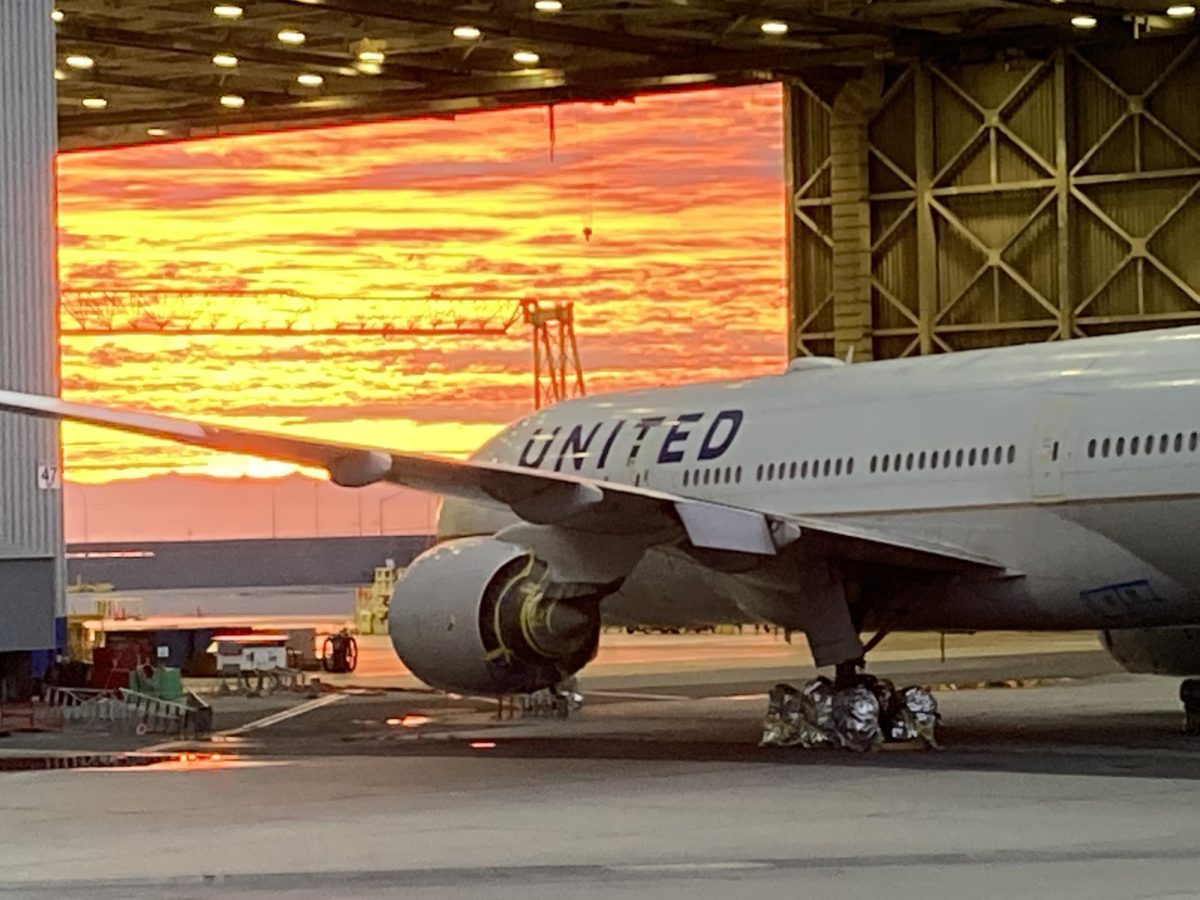After a door plug of a Boeing 737 Max 9 jet detached while the plane was mid-flight over Oregon on Jan. 6, the Federal Aviation Administration ordered a grounding of the plane model the next day, affectings thousands of individuals, including Paly jetsetters.
The FAA lifted the grounding of more than 170 domestic Boeing 737 Max 9 jets on Jan. 26, allowing airlines to resume flying the airplanes after weeks.
Junior Karthi Gottipatti, whose return flight to San Francisco was grounded after attending a school debate tournament in Arizona, said his debate team scrambled to rebook their tickets the day before school resumed after winter break.
“We were supposed to fly back a day before the end of winter break,” Gottipatti said. “As it turns out, our plane was the same model as the one (in which) the door flew off, so they grounded it, and we were delayed by about 24 hours and had to reschedule for another flight. The biggest difficulty was it interrupted the plans I had made before school and prevented me from being able to get ready to go back.”
Senior Eric Sun, who was in Puerto Rico when he heard the news of the falling door plug, said he made it to his layover in Houston before the planes were grounded.
However, aircraft maintenance staff discovered problems on his second flight, leading to a two-day delay.
“Our original flight Monday morning was on a Max 9,” Sun said. “(First), they just scheduled flights for later, but unfortunately, that plane had some issues. They ended up sending us to Salt Lake City. Then I went to Oakland, and my mom went to Sacramento because they couldn’t actually find two tickets.”
A decades-long United employee, who worked on the Boeing planes, including Max 9s, for several years and requested anonymity to avoid backlash from their employer, said United outsources most of the assembly and manufacturing of their airplanes to aircraft manufacturers, ultimately lowering the quality of their planes despite pushback from the engineering department.
“The airline was trying to save money and they really put a lot of people’s lives and the company in danger, ignoring their engineering department,” the employee said.
The employee said United had a troubled history with the door plug, which is installed when an emergency exit is not employed per FAA regulations.
“This plug seems a little dinky to me,” the employee said. “It doesn’t seem like something that a lot of thought was put into compared to other doors. The real exit door they put in there for escape would probably be a lot more sophisticated and complicated. This thing was like an afterthought. I don’t know if this was announced in the press, but (United) had a problem with it. And for some reason, they had to take it out and somebody put it back in.”
The employee said they thought there was a lack of critical foresight while the plug was being installed on the plane.
“You just got this one little rinky-dink bolt holding this thing in,” the employee said. “You’d think something that critical would have a better safety backup system. Even if the guy (who) put it in missed it, it should have been inspected by others.”
While the plane was below the average cruising altitude of around 40,000 feet at only 16,000 feet, the inside of the plane was still pressurized. When the door plug opened, there was a rapid pressure loss in the cabin as air inside of the plane rushed out.
“It’s enough to suck somebody out of a seatbelt,” the employee said. “If they were sitting in those seats (near to the door), especially with a hole that size, you’re talking (about) a lot of air going out.”
In the wake of these dangers, Gottipatti said the airlines should do more to regulate future incidents.
“Airline technology is not really a place where you can innovate and do whatever because it leads to (accidents),” Gottipatti said.
Senior Raine Zhong, who was vacationing in Mexico over winter break, said his family rushed to rebook their Alaska Airlines return flight after hearing the plane they were originally supposed to fly home on was the same model as the plane with the lost door.
“Their systems could be designed better,” Zhong said. “This is not the first time Boeing’s planes (have) had something fall off. (The airlines) should just plan for emergencies like this better.”
The employee said Boeing will most likely heavily upgrade its safety systems in light of the incident.
“I’m sure Boeing’s gonna come up with some solution to make this thing,” the employee said. “They usually go above what is needed to make (the plane) safe because they don’t want that to happen again. But that’s not really the point. The point is, this (accident) should have never happened in the first place.”


